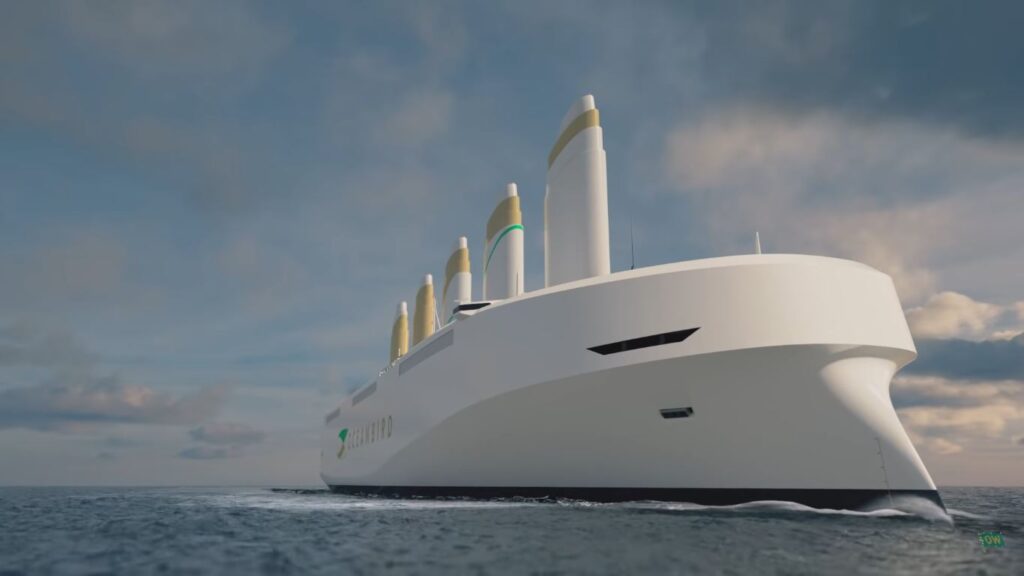Equipped with 80 meters high sails, the new ship will be able to transport up to 7000 cars and trucks saving 90% of the fuel used by current ships thanks to giant metal sails
The commitment to reducing polluting emissions also involves the freight transport sector. In many cases, the only possible choice for transatlantic travels is ship transport. Containers, combistubles, cars, trucks and many other goods are loaded on mega ships that cross the oceans and reach destinations thousands of kilometers away, causing considerable ecological damage. These ships are almost always equipped with very powerful diesel engines and so far they have no effective alternative engines.
Oceanbird is a project developed by Wallenius Marine, an established shipping company, the Swedish research institute SSPA and the Royal Institute of Technology in Stockholm. The ship will be 200 meters long, 40 meters wide and equipped with four huge 80 meters high metal sails and small engines to be used near the docks or in emergency situations. The use of sails saves 90% of fuel compared to conventional ships. Moreover, the dimensions allow the transport of higher quantities of goods and means of transport.

The sails are retractable and reach a height of about 20 meters, allowing the ship to pass under the decks and reduce instability in case of strong winds in the open sea. The price to be paid for fuel savings falls on the speed of navigation. The time to cross the Atlantic Ocean, for example, is estimated at 12 days compared to the current 8 days. The designers have already built a 7-meter scale model and will continue to test larger and larger models. Production is expected to start in late 2021 and Wallenius plans to organize the first trip by the end of 2024.
You might also be interested in -> Galvanized spirulina can clean the sea and provide energy